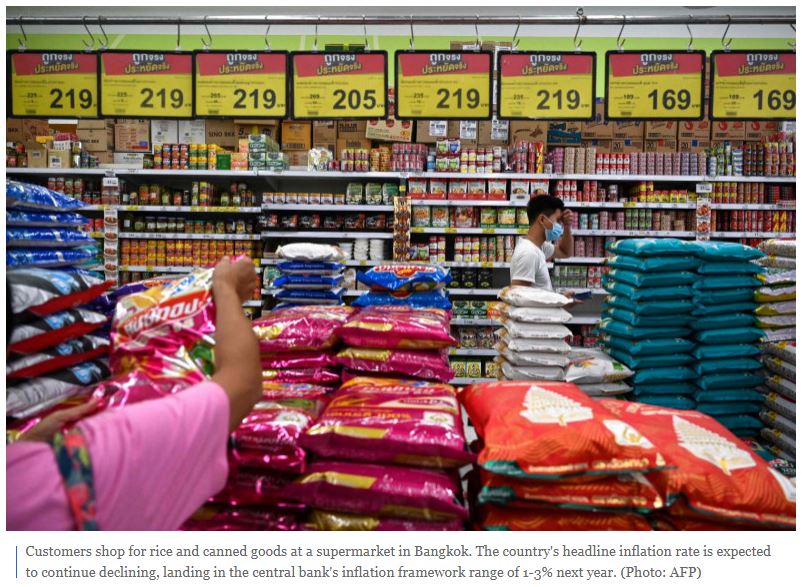Bank of Thailand still upbeat despite headwinds
The Thai economy will face more challenges next year amid global uncertainties, but its recovery remains on track, according to a Bank of Thailand (BoT) executive.
Thailand’s economy is posting a gradual recovery, as forecast by the BoT. The bank predicted GDP growth of 3.3% this year and 3.8% next year.
For 2023, the Thai economy faces increased uncertainties because of external factors, including interest rate hikes across the globe, rising inflation rates and geopolitical risks, central bank deputy governor Mathee Supapongse said at a seminar on Wednesday held by Prachachat Turakit newspaper.
The US Federal Reserve is expected to maintain its series of hawkish policy rate hikes through next year, with the Fed Funds rate projected to increase to 4.6% by 2023 from the previous outlook of 1.6%.
The Fed wants to control the high inflation rate with an aggressive monetary policy, but the market does not believe the United States inflation rate will drop to 2% next year, which is the Fed’s target.
The central banks of other developed economies also increased policy rates to contain higher inflation, especially in the eurozone and the United Kingdom.
Rising interest rates worldwide have caused an impact on the debt burden in several countries.
In 2021, fiscal debt of the US and UK increased to 128% and 95% of GDP, respectively. The global debt ratio in 2020 recorded a 50-year high at 256%, Mr Mathee said.
Geopolitics is another key risk factor challenging the global economy next year, particularly the conflicts between Russia and Ukraine as well as China and Taiwan, he said.
Given global higher uncertainties, the International Monetary Fund (IMF) downgraded its forecast for 2023 global GDP growth to 2.7%.
In addition, the IMF slashed the GDP growth rate for the EU to 0.5%, and cut the growth rate for China to 4.4%. However, the agency maintained the growth rate for the US unchanged at 1%.
Mr Mathee said the IMF forecast a higher growth rate for Thai GDP in 2023 compared with 2022, which is in line with the Bank of Thailand’s assessment.
The country’s headline inflation rate is expected to continue declining, landing in the central bank’s inflation framework range of 1-3% next year, he said.
With lower inflationary pressure, the central bank will maintain monetary normalisation under a gradual and measured approach, said Mr Mathee.
As a result of higher global uncertainties and the market’s concern about recession in some countries, the Thai economy will face more challenges.
Thailand’s GDP growth could be lower than 3% next year, although this possibility is quite low, he said.
If Thai growth is lower than 3% next year, it would hinge on weak numbers in the tourism and export sectors as well as a high inflation rate, said Mr Mathee.
This forecast assumes foreign tourist arrivals of less than 20 million and negligible Chinese visitors next year, he said.
The central bank’s forecast is 21 million foreign arrivals next year.
Moreover, export growth next year would have to shrink, compared with the central bank’s assessment of 1.1% growth, while the country’s inflation rate would have to surge to 5%, said Mr Mathee.
If the Thai inflation rate rose to 5%, that means global crude oil prices would increase to UScopy44 per barrel, which is not very plausible, he said.
Source: https://www.bangkokpost.com/business/2428605/bot-still-upbeat-despite-headwinds


 English
English




